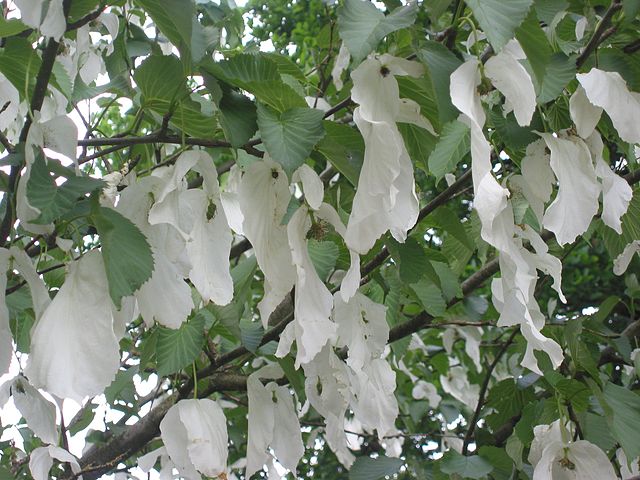- Home
- >
- Broadleaved Tree Seeds A-I by Latin Name
- >
- Dove Tree, Hankercheif Tree (davidia involucrata)
Dove Tree, Hankercheif Tree (davidia involucrata)
SKU:
£2.75
2.75
22.5
£2.75 - £22.50
Unavailable
per item
Seed Prices
25 grams (approx 3 seeds) £2.75
50 grams (approx 6 seeds) £4.95
100 grams (approx 12 seeds) £9.75
250 grams (approx 30 seeds) £22.50
Note that each seed will produce multiple seedlings -possibly as many as six
Use the drop down button below to select the seed quantity
Dove Tree (davidia involucrata)
Germination, Sowing and After Care Information
The Dove Tree has a long and complex natural dormancy within each seed which requires a degree of patience to overcome. Each seed usually contains between 3-5 embryos which gives you the possibility of getting up to five seedlings from each seed.
For germination the seeds require a long period in warm temperature (15-20 Celsius) for between 12-20 weeks to break down the first part of the dormancy followed by between 12-16 weeks of cold temperatures (at approx 4 Celsius) The breakdown of the dormancy can also be achieved by sowing the seeds outdoors at the right time of year.
Due to the length of dormancy it is advisable to start the pre-treatment in June or July. Mix the seeds with damp compost and store them undisturbed in a wooden box or clay pot in a place where they can experience warm temperatures (15-20 Celsius). Make sure that the compost remains moist at all times and protect the seeds from mice.
After between 12 and 20 weeks the seeds will have split and a root will have started to grow. These seeds can then be planted in a container and left outside to experience the winter. Protect them from mice and intense freezing. The seedlings will then emerge properly in the Spring.
Alternatively the seeds can be sown in pots outdoors in June or July and the will emerge during the Spring after the dormancy has been broken down by the natural cycle of the seasons. It is thought that letting the seeds experience the natural daily and seasonal temperature fluctuations will often give a better rate of germination than trying to perform the pre treatment artificially indoors. The germinated seedlings can then be separated and transplanted into individual containers filled with good quality compost..
Keep developing seedlings well watered and weed free, provide a little shade during hot, sunny weather. Plant them in their permanent positions after 2 or 3 years.
For germination the seeds require a long period in warm temperature (15-20 Celsius) for between 12-20 weeks to break down the first part of the dormancy followed by between 12-16 weeks of cold temperatures (at approx 4 Celsius) The breakdown of the dormancy can also be achieved by sowing the seeds outdoors at the right time of year.
Due to the length of dormancy it is advisable to start the pre-treatment in June or July. Mix the seeds with damp compost and store them undisturbed in a wooden box or clay pot in a place where they can experience warm temperatures (15-20 Celsius). Make sure that the compost remains moist at all times and protect the seeds from mice.
After between 12 and 20 weeks the seeds will have split and a root will have started to grow. These seeds can then be planted in a container and left outside to experience the winter. Protect them from mice and intense freezing. The seedlings will then emerge properly in the Spring.
Alternatively the seeds can be sown in pots outdoors in June or July and the will emerge during the Spring after the dormancy has been broken down by the natural cycle of the seasons. It is thought that letting the seeds experience the natural daily and seasonal temperature fluctuations will often give a better rate of germination than trying to perform the pre treatment artificially indoors. The germinated seedlings can then be separated and transplanted into individual containers filled with good quality compost..
Keep developing seedlings well watered and weed free, provide a little shade during hot, sunny weather. Plant them in their permanent positions after 2 or 3 years.



